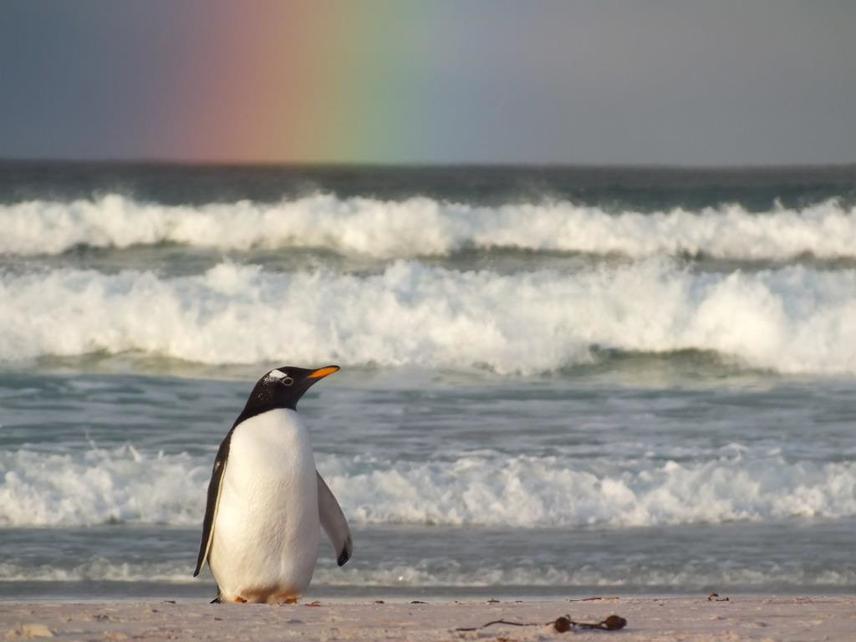Social media video featuring the project.
Jonathan Murray Handley
The aim is to investigate diet and foraging behaviour both spatially and temporally using two dietary investigative techniques and to assess spatial distribution of Gentoo penguins and potential overlap with anthropogenic effects.
Potentially the most important threats to Gentoo penguins are likely to stem from fisheries interactions and oil exploitation. Penguin populations in the Falkland Islands declined in the late 1980’s. With lack of information on these declines coming from natural or anthropogenic phenomena the Falkland Islands Seabird Monitoring Program (FISMP) was initiated. Previous work highlighted a marginal overlap with fishing industries.

Gentoo penguin
In 2006 however, a new finfish fishery arose catching Rock Cod. Fisheries previously saw these as by-catch, and previous dietary studies showed these fish to account for 20% of Gentoo diet. Oil exploitation has also begun in Falklands waters with rigs less than 100km offshore. In light of the recent growth of these industries in the Falklands, there is now a growing urgency to establish basic ecological information for key marine predators in order to guide conservation initiatives. These initiatives will both conserve the species themselves and also help sustain ecotourism, an important investment for education and long term income to this region.
This will be the first study looking at variability in foraging distribution and diet in Gentoo’s at this scale in the Falklands. Covering three sites across the Falklands: Steeple Jason Island (North West), Cow Bay (North East) and Bull Point (South), this project will be the first at these sites to investigate diet via stomach content analysis and feather stable isotopes, a developing, non-invasive and user friendly technique. Diet will be assessed from data collected in 2011/2012-2012/13, and previously during the 1986/87-2003/04 seasons.
Foraging distribution will be studied though the use of global positioning systems and time depth recorder loggers. Interaction with fisheries will be compared by looking at overlap in prey species and at sea distribution. Representative prey species will be collected by the Falkland Islands Fisheries Department and isotopic mixing models will be developed to allow for easier long term monitoring of diet. Two kinds of video cameras will also be trialled for potential use in various aspects.
The project will establish new baseline data on Gentoo foraging ecology in detail that has not been achieved previously here. Field collections undertaken by locals will allow community engagement, with direct outcomes being seen from the project. Working with the Fisheries Department will help establish community links between our conservation NGO, Falklands Conservation and an industry of economic importance. Outcomes of the project may assist future fisheries policies.